Please Note: This blog is longer than a blog should be, but many words were required to tell this important story.
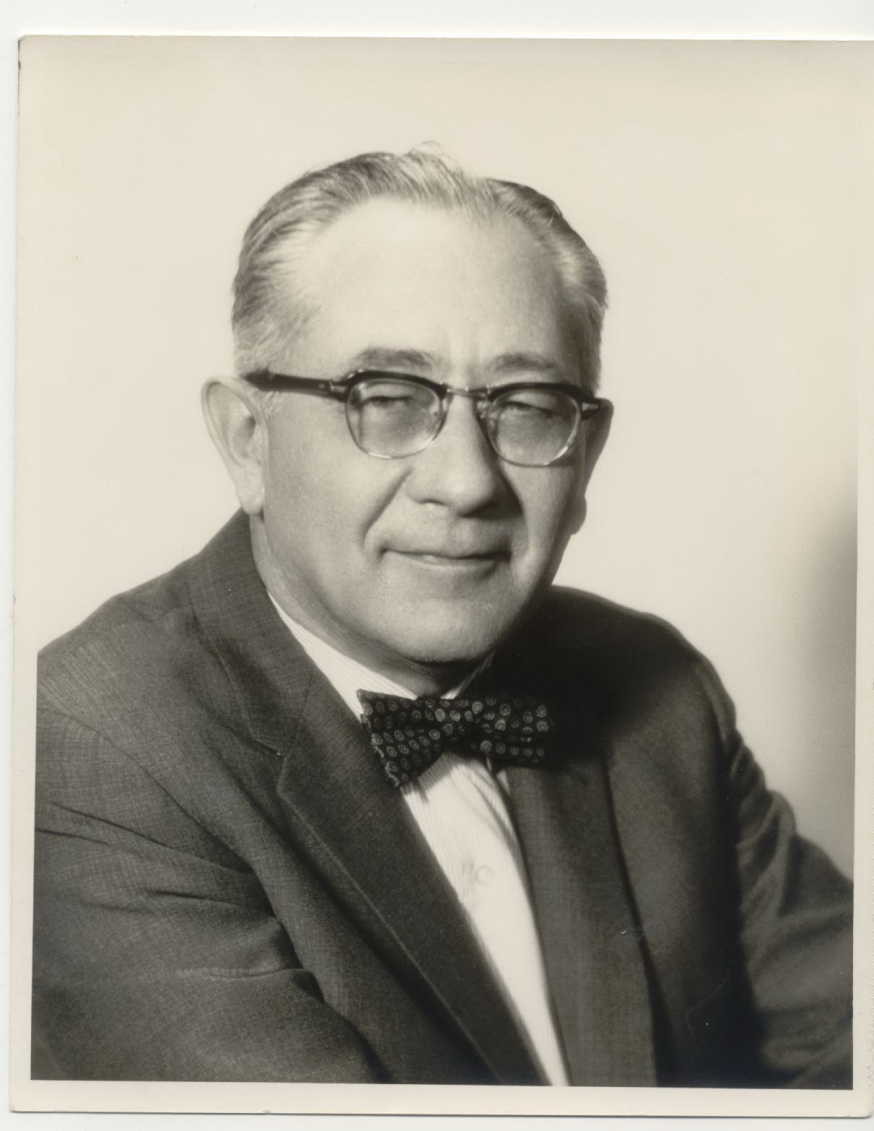
Frank R. Dickinson was my father, and he loved me. It took nearly a lifetime before I began to understand that my father loved me and only now – in my late 70’s – do I fully appreciate the impact that his love, understanding, and caring, had on my life.
Early Years
During the first part of my life, I did not — I could not — know that or feel that. My father’s behavior towards me led me to believe that he did not even like me and wished I had not been born.
And so, during those years I also wished that I had not been born. I was so unhappy that at a young age I vowed to never have my own children. I said then that I would not want to bring anyone into a world like I lived in.
My memory is not always clear as to whether the problem was my father’s behavior towards me or my perception of his behavior . . . or my perception of myself. It was not just because his behavior included yelling at me and even spanking.
It was his general attitude of disrespect towards me.
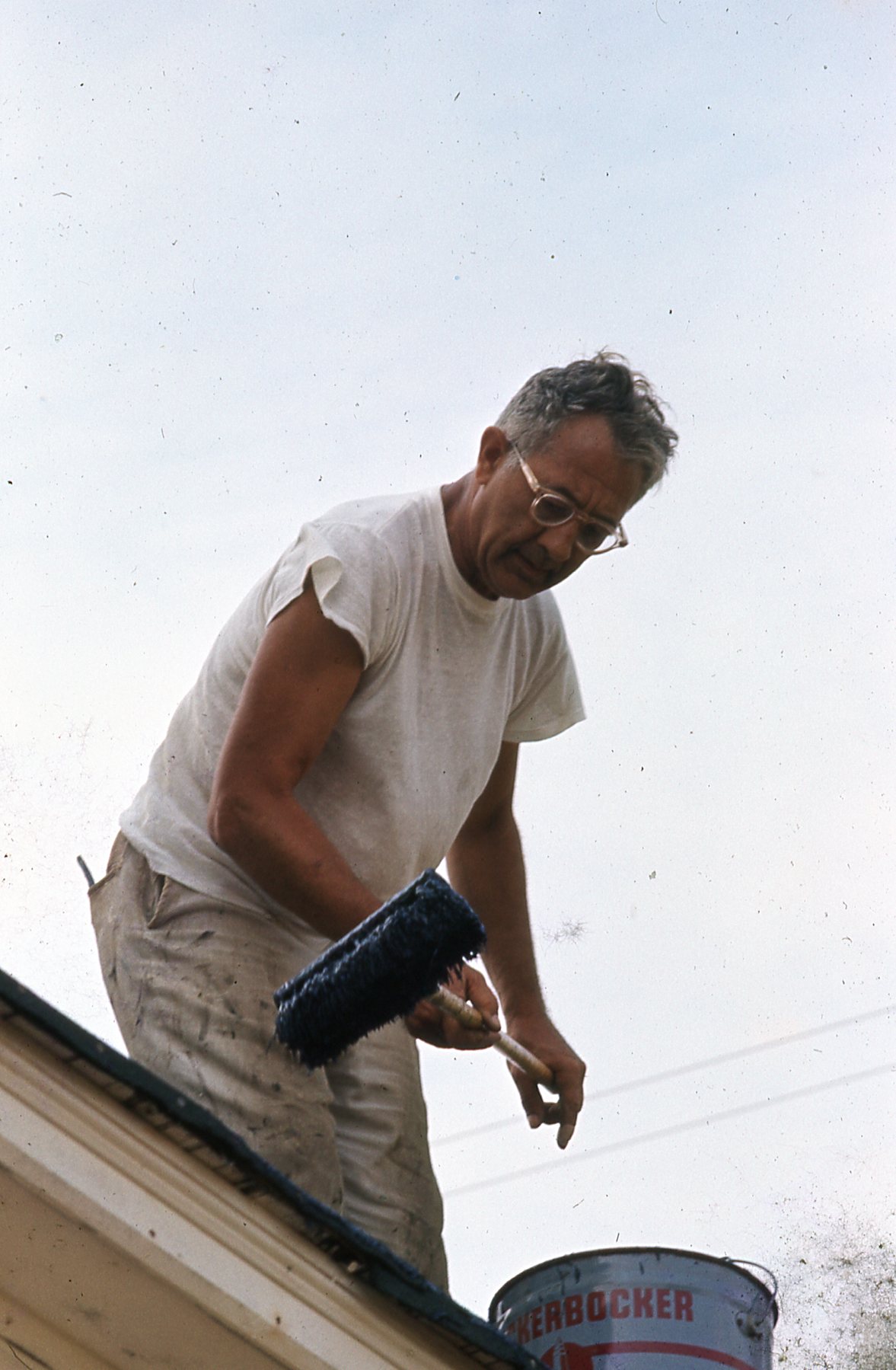
Whether it was helping him with yard projects, or working on the car, or his endless stream of home improvement and woodworking projects, or schoolwork, it seemed my performance was never up to his standards.
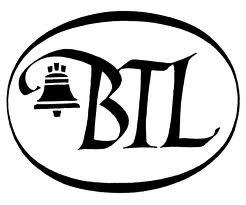 The perfectionism that drove his frequent criticism of me came from his work. He was a brilliant and creative engineer who during his lifetime career at the prestigious Bell Telephone Laboratories invented patent-earning technologies for undersea telephone cables. But he was also an alcoholic whose erratic behavior was driven by the unpredictable mood swings inherent in that disease.
The perfectionism that drove his frequent criticism of me came from his work. He was a brilliant and creative engineer who during his lifetime career at the prestigious Bell Telephone Laboratories invented patent-earning technologies for undersea telephone cables. But he was also an alcoholic whose erratic behavior was driven by the unpredictable mood swings inherent in that disease.
That meant even calm moments were not comfortable ones.
Whatever the source of my feelings, they drove me to live as far separate from my father and my family as I could get. I often left the dinner table in tears and even when I left the table without tears, I spent most evening hours alone in my room reading books and listening to serial shows and music on my radio. Mrs. Randall at the local children’s library introduced me to John Paul Jones and other great heroes, and my radio introduced me to Fibber McGee and Molly, The Great Gildersleeve, Sky King, and others.
A Shared Love
Despite our tense relationship my father and I shared a love for certain things, especially music, and we enjoyed it together. Early on I learned how to play records and after he added FM radio to the living room sound system, we listened together on Monday nights to the New York Philharmonic’s WQXR broadcast of its Carnegie Hall concerts.
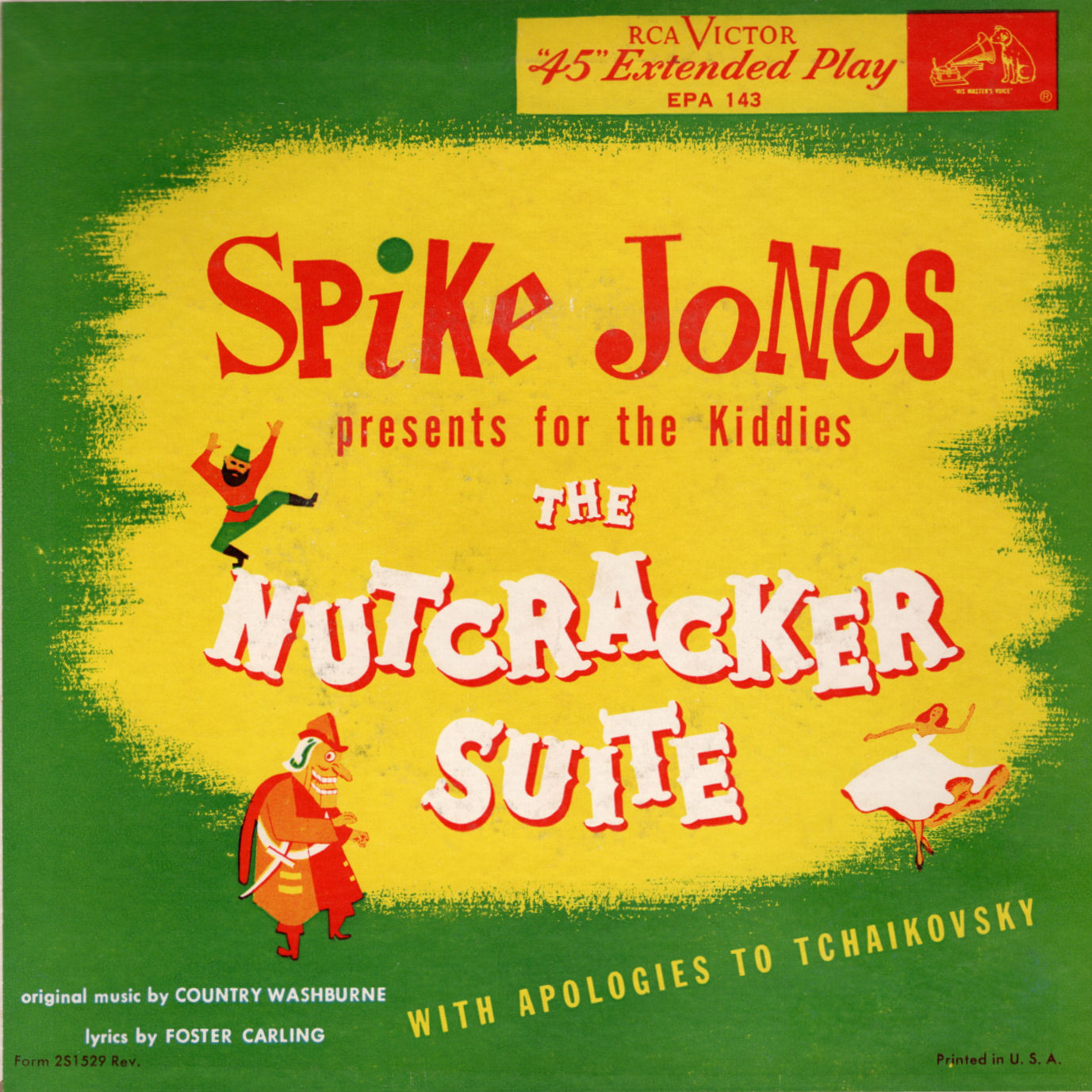 I did not know much about the music being played, but I knew it was beautiful, and that we both loved it. He even made a record player for my room in his woodshop and gave it to me on Christmas morning with copies of Tchaikovsky’s 1812 Overture and Spike Jones’s Nutcracker Suite, included.
I did not know much about the music being played, but I knew it was beautiful, and that we both loved it. He even made a record player for my room in his woodshop and gave it to me on Christmas morning with copies of Tchaikovsky’s 1812 Overture and Spike Jones’s Nutcracker Suite, included.
But tensions always prevailed, so while he thought it was great that I took piano and clarinet lessons, he was frequently and harshly critical of my playing, especially during student recitals. His attitude played a large part in my decision to quit music lessons.
The record player and those Monday nights should have told me more than they did about how my father really felt about me, but his overall attitude towards me told me something different, and it remains difficult for me to discern how much of our dissonance I owned, especially as I became a teenager with bad attitudes of my own.
Teen Years at the Shoe Store
Life at the dinner table during my teenage years did not get any better, and I became depressed. My mother sent me to a psychologist but that ended when he told my father that what I needed was a father.
I began to avoid dinner and most family interactions. I got a job selling shoes in a store a few towns away and by the time I got home from work I had to eat cold leftovers for dinner. That was better than sitting with my father at dinner because I could just eat and go to my room to study and read.
I rarely talked with my father during those years as I focused on getting through high school successfully enough to get into college and out of the house. And while I thought he ignored me as much as I tried to ignore him, my father proved me wrong one day when he returned from a business trip and was anxious to talk to me.
A Critical Turning Point

He was excited to tell me that he had found the perfect college for me. Antioch College is in rural Yellow Springs, Ohio, and at that time it had a work-study program. Students spent half the year on campus and the other half was spent working at off-campus business, research, or academic jobs.
I was astonished to learn how much attention my father had paid to how I was living. He understood that I loved my work at the shoe store where my interactions with customers and colleagues had taught me a lot about business and people.
He realized that while I was a decently good student, learning by doing suited my way of thinking far better than classroom- and book-focused studies. He understood that a program like Antioch’s would suit me better than an ordinary college education.
I realize now that he also knew our parent-child relationship had not been a good one and that the store owners had provided some much-needed supplemental parenting. He guessed that Antioch and its work-study program would continue fulfilling that need at the same time it taught me the skills I needed to live independently.
It all meant that my father knew who I was, what I liked, and what I could do, and he had identified the sort of college environment that would be most likely to foster my growth. He affirmed for me many things I believed about myself. In other words, he knew me and cared about me.
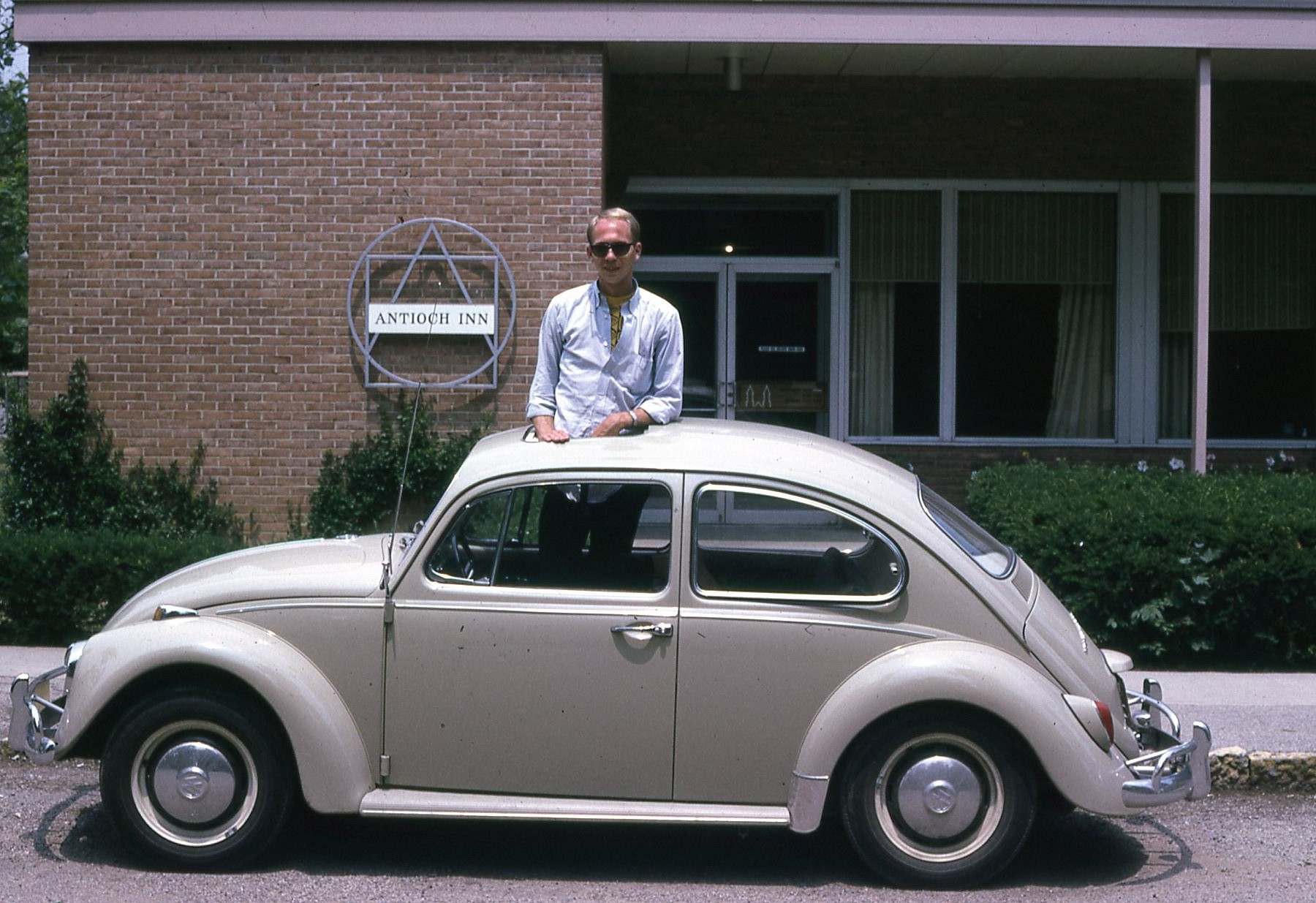
My attitude and perceptions of my situation improved because I was given the opportunity to migrate from a classroom-based high school environment to a seminar- and work-based college. Honest communication between my father and me became the norm from that point on.
Antioch was an academically tough school at that time, and when my mediocre first quarter grades came out my father was none too thrilled. Unlike during high school years when that sort of result would lead to a hostile conversation, my father – for the first time ever – wrote me a thoughtful letter about the need for improvement so that my investment in college could pay off. True to form, it also included a threat, but the thoughtful part mattered a lot to me.
My Antioch years were transformative, and I am grateful to my father for initiating that experience. He did not give me what Antioch did for me, but he did give me Antioch, and I am even more grateful when I look back at the level of communication we had during that time. It showed the respect that my father had developed for me while I was not paying attention to him.
Another Turn
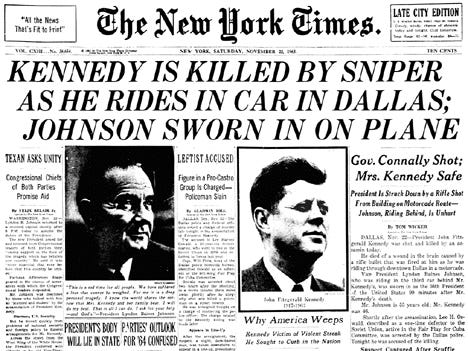 My father began reaching out to me, something I never would have expected. During my second Antioch year President Kennedy was assassinated and I was surprised when my father called me wondering what I thought he should do and what I thought this awful event meant.
My father began reaching out to me, something I never would have expected. During my second Antioch year President Kennedy was assassinated and I was surprised when my father called me wondering what I thought he should do and what I thought this awful event meant.
He was beginning to respect what I had to say, so when he was in Yellow Springs on business, he invited me to dinner with his Bell Labs colleagues. I got into a heated conversation about the Viet Nam war with these very informed, intelligent people. They listened carefully as I worked to convince them of my antiwar position, and my father did too.
Other Family Issues
I was not the only unhappy family member, and when my sister decided to leave the family by marrying someone my parents did not approve of, my distraught father turned to me for help. That was a good thing, but despite several years of many deep conversations, my father never pursued the paths of thinking and behavior that I suggested might have led to reconciliation with my sister.
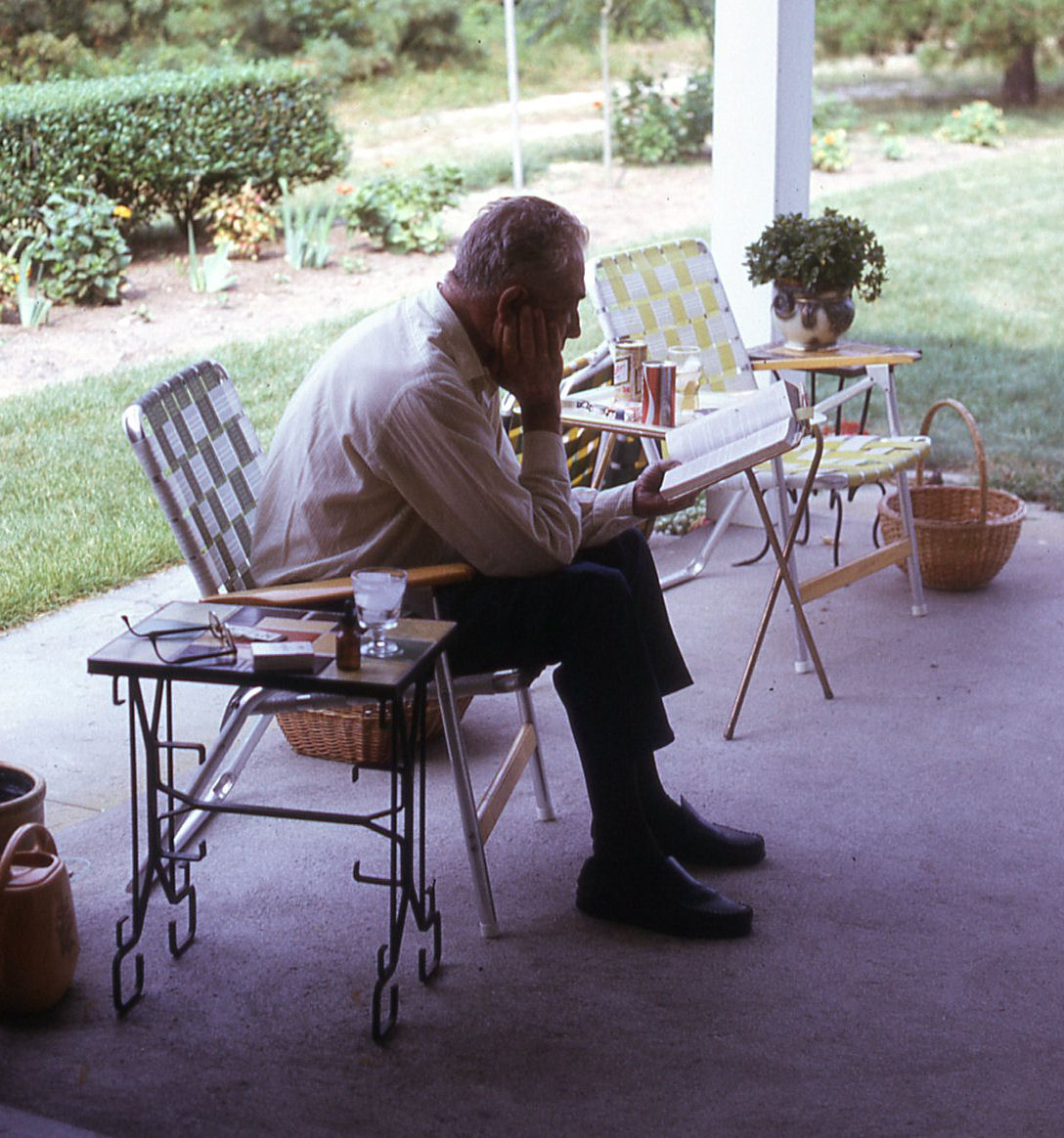
He just could not deal with the loss of her, so those years were painful for him. He became ill and retired, and his alcoholism became much worse as he sat around with nothing to do. The good news was that we became better friends during that time, but the bad news was that the friendship was based on conversations lubricated by alcohol.
We started drinking with the six o’clock news and kept at it through the evening, talking mostly about my sister and her four children whom he would only see twice. My alcoholism also became worse, but it was to be several years before I finally dealt with it.
Mourning Without Tears
When my father died about 50 years ago, I mourned his loss, but only for a short time and I mourned without tears. While I did not completely ignore the better years, my memories of him and my perception of our relationship were overwhelmed by the earlier, difficult times. I landed somewhere between denial and letting go of my relationship with my father.
From then until I got sober, I led a life that included a career to nowhere and personal relationships that were mostly unsuccessful. I was twice fired from jobs, divorced and in a second bad marriage. My father’s poor interpersonal behavior had reached beyond the family, and I had inherited and mimicked much of that behavior.
I did the best I could to live a decent home life, using many of the home owning and other habits that I grew up with. I rented, bought, sold, and maintained, homes, boats, cars, all the things that made middle class life worth living in those days. And, just as my father had, I did as much of the maintenance work as possible.
I could saw wood and swing a hammer or a wrench, and I was way more willing than my father to hire an expert when things got beyond my skills, especially after I sobered up. But I was always a bit frustrated that I did not have the array of tools that made my father’s woodworking and other hobbies so successful.
ShitGoddamnit!
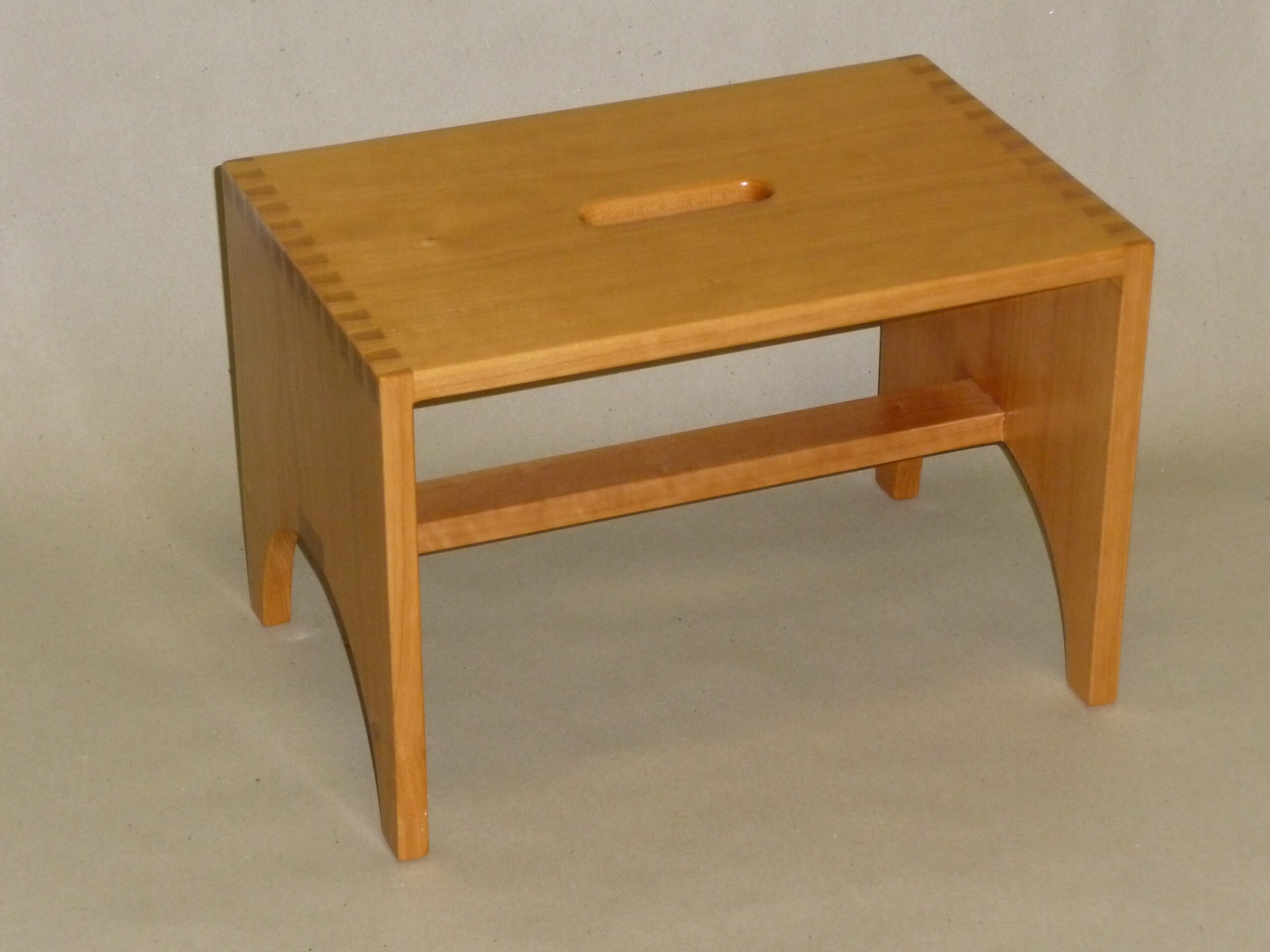
To end my tool problem, I bought a table saw for a 60th birthday present to myself and started making things. As my skill level and tool collection grew over the next few years, I made furniture items for the family, and while I did not achieve the near-perfect level of my father’s craftsmanship, the results were decent, and I and the family were happy with them.
Then one day a simple expletive changed the way I thought about my father and his role in my life. A piece of wood cut at a complex angle made it difficult to get the length exactly right, so I carefully set up my miter saw but got wrong and cut the wood a mere 1/8” too short.
“ShitGoddamnit!” came out of my mouth immediately.
I had never used that expletive before, but it was exactly the one my father almost always used whenever he made a mistake like I had made.
In that moment I realized that I was doing things and behaving much as my father had, and that I had been doing so for a long time. That began a long, slow instrospective thought process in which I began to see my father’s traits in my behavior, my hobbies, my interests, both good and bad.
 Some things were obvious, and I had recognized them before – my love of music, for example, never waned, although my tastes in musical genres ranged far wider than had my father’s. Today my wife and I are regular attendees at classical and other music concerts, my piano lessons have resumed, and I am a board member of the local Santa Cruz Symphony.
Some things were obvious, and I had recognized them before – my love of music, for example, never waned, although my tastes in musical genres ranged far wider than had my father’s. Today my wife and I are regular attendees at classical and other music concerts, my piano lessons have resumed, and I am a board member of the local Santa Cruz Symphony.
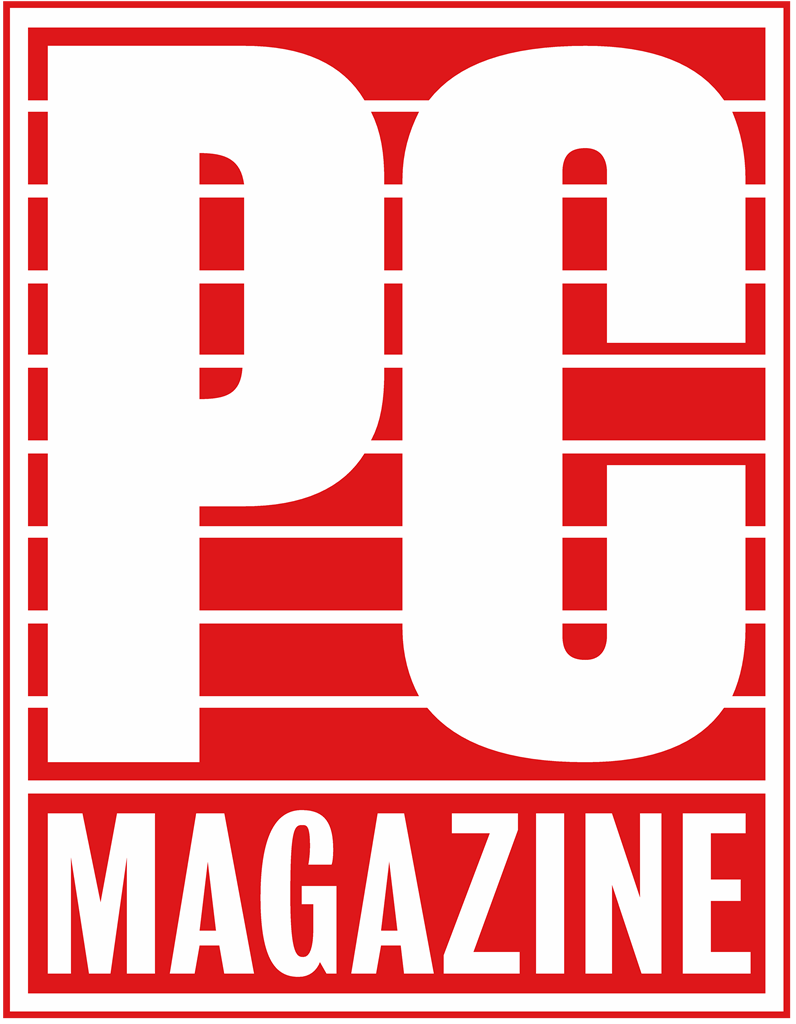 My career was different from his but shared many characteristics. Like my father, the core was technical, although in my case it has been computer technology. More important, any successes I had were due to a creative streak that I share with him. I have no patents, but I created PC Magazine Labs and was instrumental in the development of many innovative computer magazine editorial paradigms and have created and re-created magazines.
My career was different from his but shared many characteristics. Like my father, the core was technical, although in my case it has been computer technology. More important, any successes I had were due to a creative streak that I share with him. I have no patents, but I created PC Magazine Labs and was instrumental in the development of many innovative computer magazine editorial paradigms and have created and re-created magazines.
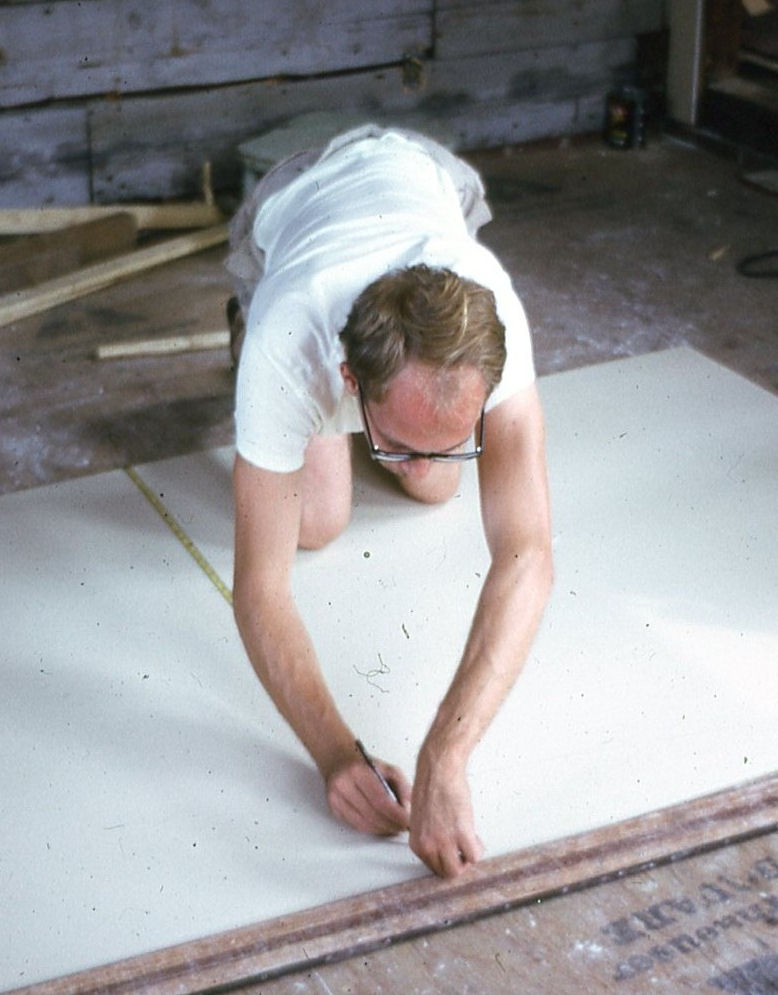
My father did not actually teach me many of the skills I have used, but I was a keen observer and learned much of what I know about mechanical and home maintenance tasks by watching him do things. And it seems that I began to respect and learn the skills that he thought I lacked in the early days when he began to respect me. There were some things we learned together, especially during the time I spent helping him transform the family house into a retirement home.
Some of his characteristics that I was duplicating were not good. Erratic behavior towards family, friends, coworkers and even people I did not know, was part of that and I have worked hard to steady my behavior, especially since I got sober. Things have improved quite a bit over time.
I also inherited his perfectionism and applied it to my work, my driving, my woodworking, my piano playing . . . just about anything that I could try to perfect. Unfortunately, my perfectionism spilled over into my judgement about the work and behavior of others, and I have worked hard to tone that down as well.
He Is Still Here
I think of my father often these days, especially when I do something that reminds me of what he did or when I use one of his many tidbits of advice, nuggets like:
- A place for everything and everything in its place.
- Always hold the door in case someone is behind you.
- You can learn how to do something from a book or a magazine article (he would have loved the Internet).
- Pay attention! You’ll learn something.
- Learn by watching, then by doing.
- If you do not belong someplace, walk like you do belong there.
- If you are afraid, act as if you are not.
My father was the most difficult person who was ever in my life but today I see him as my most important mentor. He gave me much of what makes my life rich today, and I only hope that I have been able to pass some of that wealth on to others.
As I said at the start of this post, Frank R. Dickinson was my father and he loved me.
I was born on February 9, 1944; my father died on August 7, 1972. He was only 66 years old.
Oh, John, you have me in tears! This was an incredibly well done profile of both you and your Father. Also, it illuminated so much of myself to me. You are very wise and have used your awareness of life very effectively. May I learn too. Thank you, John.
Lovely
What an interesting, admirable, generous piece of writing. Growing up with him was certainly a character-building experience for you! (Understatement of the day.) One can only wonder what he (and you) would have been like without alcohol in the picture. Totally different, I’m sure. Your father had so much love and vulnerability that he did he best to drown. (Where was your mother in all this?) Well, thank you for posting this piece. Shitgoddamit but human relations are complex and challenging!
Craig, that’s high praise coming from one of my most important mentors! Thank You!
Very nice John! I read the whole thing! Seeing the positive in your father is something i have been lucky enough to do with my father for most of my life even though I can’t recall hardly anything I learned from him except some personallity traits that I must have gotten from him but don’t have any idea what they are.
Thanks John for your friendship and good job!
Marty
I am in awe of what you have written and how well you are able to express yourself. I did not know you well in high school but feel that I have benefitted from knowing you on our Zoom meetings with other classmates. You are truly an amazing person! Thanks for sharing this with everyone. It makes me think about my relationships with my parents….
Caryl, how kind of you . . . I have come to value the GRHS crew that meets on Zoom quite a bit, you in particular!
Beautifully written, and a story of amazing compassion, understanding, and forgiveness. You, you, you are brave and kind. Thank you for sharing your story.
Thanks, John. What a powerful, honest, thoughtful piece. What was it culturally that made mid-20th century fathers bear down so hard on their sons? What does this dissatisfaction back then say about where US culture is today? Peter
I really appreciate the effort that went into that blog post — the writing (and condensing!), of course, but especially the disciplined reflection that drove that writing. One clearly gets a sense of the evolution of your feelings toward your father. So yes, you were able to pass some of that wealth along to readers. Well done!
Thanks, Alan. 2,500 words that took about 25 years to assemble!
Thanks for sharing. I think you’ve written a good tribute to your Dad and have done a very thoughtful recounting of the strained relationship the two of you had. It clearly evolved, and while the pain of the early years has left deep scars, the reconciliation of the later years shows a level of care and respect. You are also very honest in recounting your own journey; both how it was impacted by your relationship with your Dad but also you have dealt with that legacy to take you to a better place in your life today. Given all you have to say, it’s not too long.
I appreciate your openness about your struggles with your father and your perseverance in learning from the pain and gaining a lot of wisdom in the process. That has come through to the benefit of me and our GRHS classmates during our recent Zoom reconnections.
Pat
Thank you Pat, I have come to value your friendship too — a Covid/Zoom benefit!
Your thoughts, always so well expressed and with such vulnerability, brought me back to my father’s death when I was 25. I only felt relief – relief that I would no longer have to try to measure up to an impossible standard and to finally let go of the hope that he really loved me. I imagine much of that is my perception as he was a troubled man who buried himself in his work. I have not done the work you have done and your thoughts have made me rethink that. What a brave soul you are.
I haven’t participated in any of your Zoom meetings, but I did read your posting. I found it fascinating and very moving. You’ve been on quite a journey and have assimilated your life experience in a mature and thoughtful way. Kudos to you.
Although each person’s journey is unique, I think there are universal elements at play in all our lives. Relationship with our parents is one of them. No matter how enlightened or flawed our parents might have been, they impacted us in very deep ways – ways that probably both the parent and child were unaware of. Your story communicates that so very well.
In looking at my own life, which had very different specifics than yours, I have seen very similar themes. My parents couldn’t love me in the way I wanted or expected. I’ve concluded that this is part of life’s journey. Without that disillusionment, I would probably never have “left home” psycologically and not been able to fully develop my own unique individual identity.
I’ve also concluded, as I think you did as well, that my parents did the best they could do. They entered parenthood with their own set of baggage that they inherited from their parents.
I know that as a parent I’ve done some things well and some things rather poorly. But I really do believe I did the best I could! I hope our daughter concludes that as well.